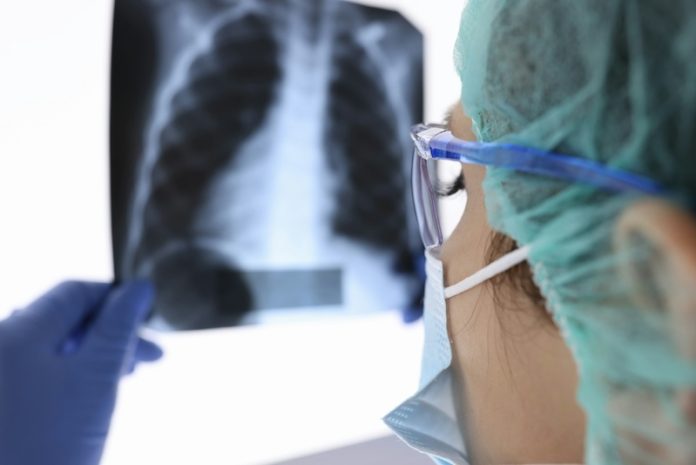
The traditional approach to diagnosing lung cancer, heavily reliant on invasive procedures like biopsies, is on the brink of a monumental shift.
But a new study shows that blood tests could help detect lung cancer.
Presently, lung cancer diagnosis primarily involves imaging scans followed by a biopsy to confirm the presence of cancer cells.
This method, while effective, poses risks and discomfort for patients, particularly those too frail for invasive procedures or those who opt out of them.
The new research work focuses on identifying specific proteins in the blood associated with lung cancer. It offers an alternative to traditional diagnostic methods.
The research underscores the complexity of lung cancer, which comprises various forms, each requiring a tailored treatment approach.
The unique protein markers in the blood could change how lung cancer is detected, enabling early treatment without the need for invasive biopsies.
The study tested over a thousand participants, including individuals with, without, and suspected of having lung cancer, across six Dutch hospitals.
The team to establish a reliable database for analyzing protein markers using liquid chromatography-tandem mass spectrometry (LC-MS/MS).
This technique, capable of detecting tumor markers at very low concentrations, holds promise for enhancing lung cancer diagnosis in clinical settings.
The potential to diagnose lung cancer through a simple blood test could strongly improve patient care, particularly for those at high risk or unable to undergo current diagnostic procedures.
By detecting lung cancer early and accurately, treatment can commence sooner, potentially improving outcomes for millions worldwide.
This research is a critical step towards making this a reality, emphasizing the need for further development and clinical trials to integrate this method into everyday practice.
If you care about cancer, please read studies that low-carb diet could increase overall cancer risk, and new way to increase the longevity of cancer survivors.
For more information about cancer, please see recent studies about how to fight cancer with these anti-cancer superfoods, and results showing daily vitamin D3 supplementation may reduce cancer death risk.
Copyright © 2024 Knowridge Science Report. All rights reserved.





